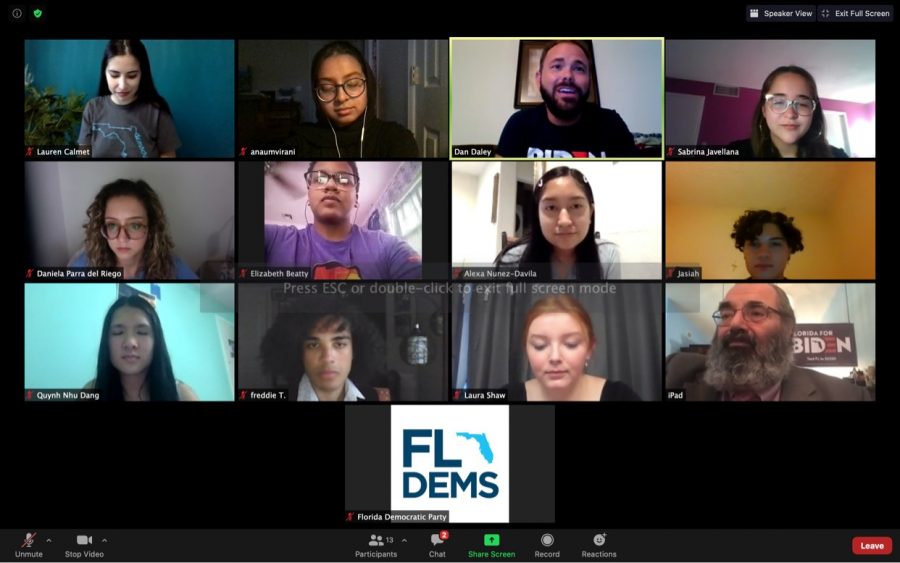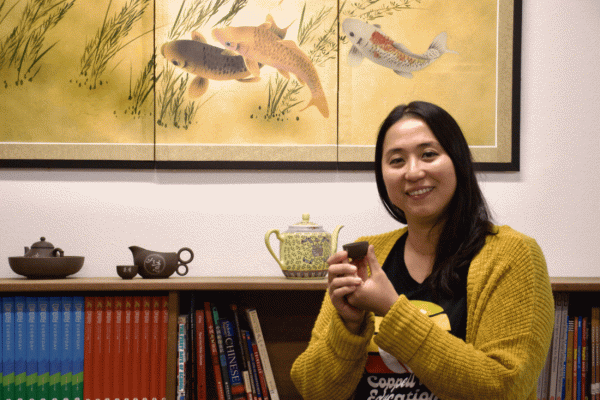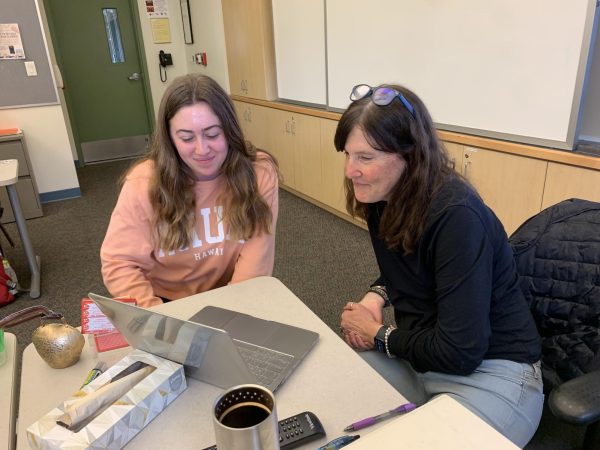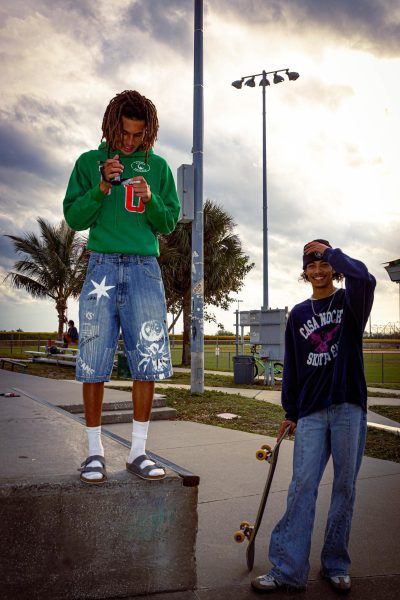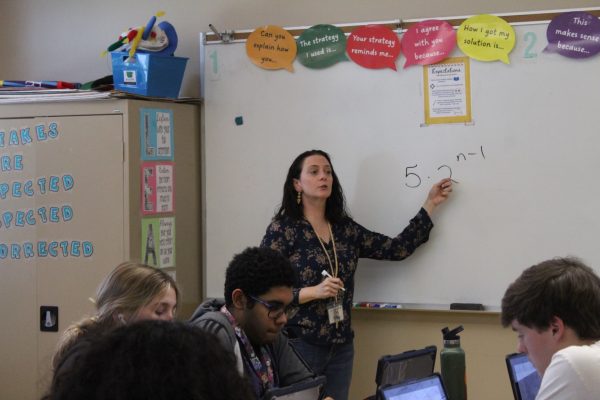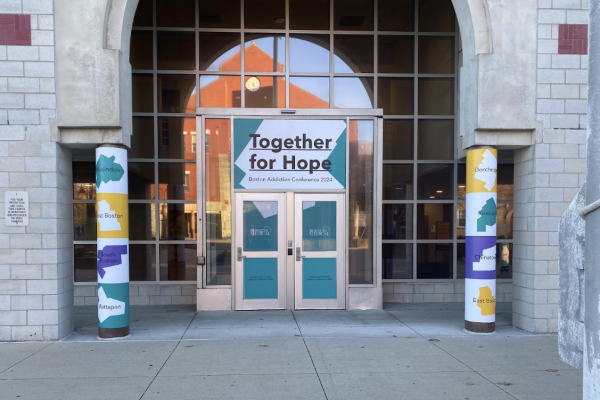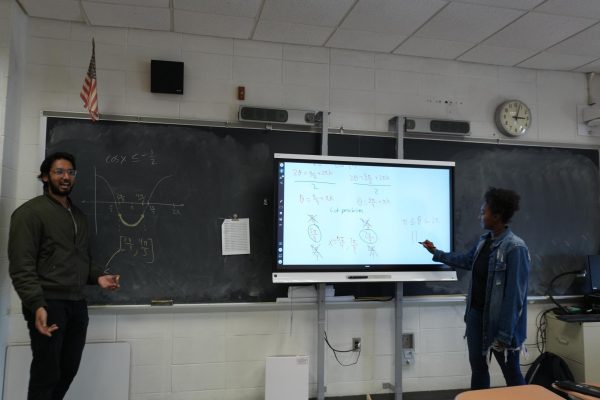Beyond the ballot
Quynh Nhu Dang (’21) gains hands-on experience in local campaign.
Courtesy Quynh Nhu Dang
Dang (bottom left) meeting with Florida Democratic Party representatives Joe Geller, Dan Daley and Sabrina Javellana.
November 4, 2020
Like many Robinson students, Quynh Nhu Dang (’21) has a unique background. She moved to the United States at just 9 years old, and saw the impact of politics on the immigration system firsthand. Fast forward to 2020, and Dang now finds herself involved in her community’s politics. Despite the presidential election being the focus of this year’s political attention, Dang has seen the important role government plays on an often overlooked level: local.
Dang is currently volunteering with Florida House District 64 candidate Jessica Harrington, who represents Northeast Pinellas and Northwest Hillsborough County, including Dang’s neighborhood of Westchase. Through this opportunity, she’s seen firsthand what goes into a political campaign, from calling supporters to researching the economic factors as Harrington’s Finance Intern. Whereas many only see a campaign as the candidate, Dang expresses how much work truly goes on behind the scenes.
“Being [personally] involved with the campaign process makes me realize how many people are actually involved in the campaign besides the candidates themselves,” Dang said. “One campaign can include people such as the field organizers, the social media manager, and the treasurer.”
Dang connected with Harrington’s campaign through the Florida High School Democrats, an organization where the former was elected Director of Political Affairs. Through FLHSD, students connect with politicians, many reaching out to the organization to gain support for their campaigns. Dang was motivated to join Harrington’s team following the 2018 midterm election, where she lost a close race against incumbent James Grant.
Going further back, Dang’s interest in politics originated during the 2018 midterm elections, as well as after taking AP United States Government as a freshman at Robinson. Having been exposed to the various levels of government, she shifted her focus to her community, taking an interest in local politics.
“As important as the presidential election is…people don’t really think about our Tax Collector, or our Sheriff and our School Board, who are really the ones affecting us,” Dang stated.
Although her emphasis has been on local politics, Dang has still experienced a variety of unique opportunities outside of the Tampa Bay Area. She fondly looks back on participating in the Florida Democratic Party’s “Blue Gala,” which features registered democrats, representatives and this past year, former Vice President and presidential candidate Joe Biden.
Like any individual involved in politics, Dang recognizes the importance of professionalism. However, her work has come with a personal, more emotional aspect that has opened her eyes. Through volunteering on campaigns and boards, she looks backs on working with an array of people.
From those coming from disadvantaged backgrounds, to school shooting victims and people directly impacted by issues like climate, Dang has seen a multitude of perspectives, even just from working in her own community.
Most significantly, she recalls calling supporters as the deadline for voter registration approached, reaching a man in South Florida. Upon talking to him more, Dang learned that the man was homeless, and unsure of how to proceed with voting.
With this in mind, Dang told the man she would call him back, then researched his question. In many states, voters are required to provide proof of residence in order to vote, limiting many people from exerting their right. As stated in Florida’s voter residency guidelines, homeless people do not need to provide proof of address, since “the voter registration laws cannot be applied in a manner to deny such person the right to register to vote.”
“That opened my eyes, because I didn’t think about that, so I told him that I would hang up, find out about it, and call back…” Dang said. “When I called him back he was like ‘thank you,’ he didn’t expect me to call him back.”
By working behind the scenes on campaigns, Dang doesn’t just see how the politicians themselves maintain a presence and impact. It’s interactions like these with the community that have made her experiences stand out, and value the importance of voting even more.
“It made me sad in a way, but at the same time it also made me grateful for what I have and grateful for the fact that I can vote easily,” Dang said.
While Dang is unsure whether she wants to pursue politics in the future, her experiences have solidified how unexpectedly easy it is to play a role in the community. From a global standpoint, she expresses that some factors need to change, on a local and global scale.
“I think we should just be more open to political topics, I feel like a lot of people tend to shy away from it…it can be very heated and very polarized,” she said.
Regarding the upcoming elections, Dang expresses her excitement for more youth turnout. As of Oct. 30, AP News reported that “11.3% of early votes have been cast by voters between the ages of 18 and 29. That’s up slightly from this point in 2016, when 9.6% of the early vote was cast by people under age 30, according to TargetSmart.”
Dang urges younger people to shed light on politics, and bring attention to the discussions that may be hard to have. Being 18 and having just voted in the election, she has taken her hands-on experience and turned a job into an opportunity to grow.
“No change will happen if people don’t talk about it,” Dang said.
This story was originally published on RHS Today on November 4, 2020.



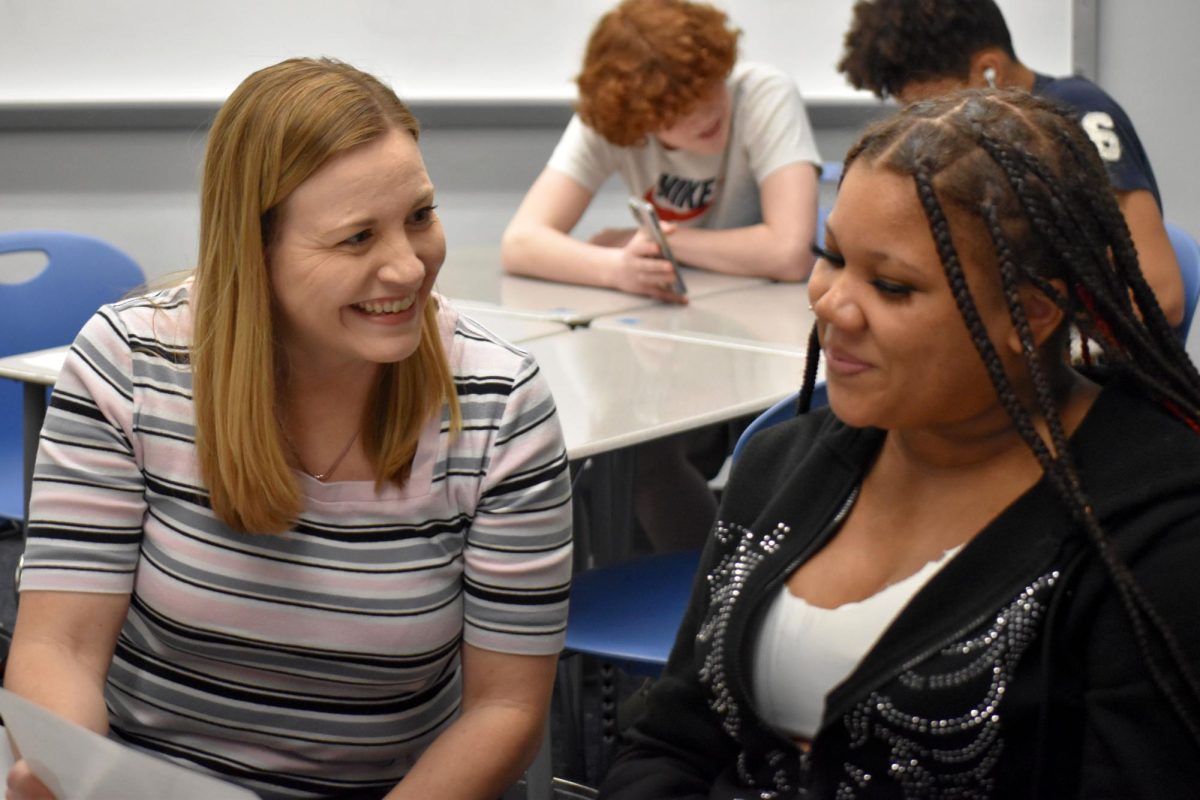
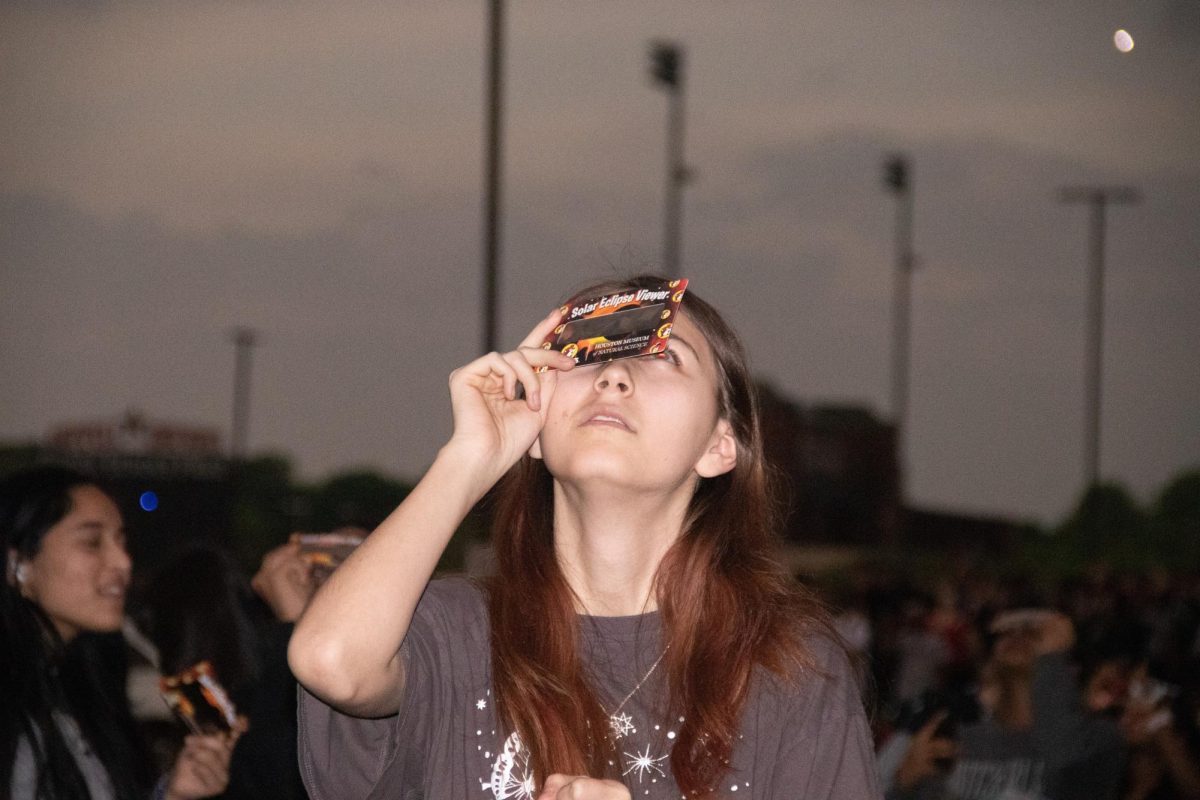










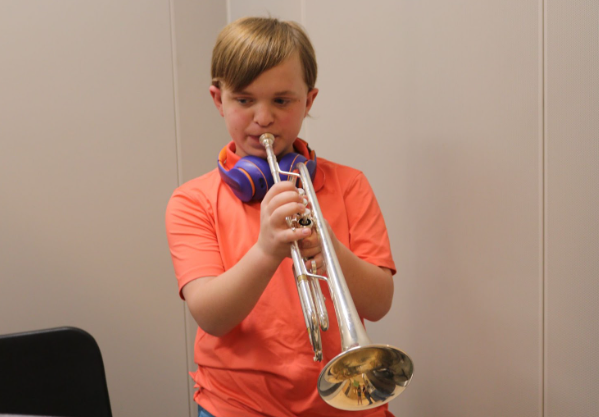




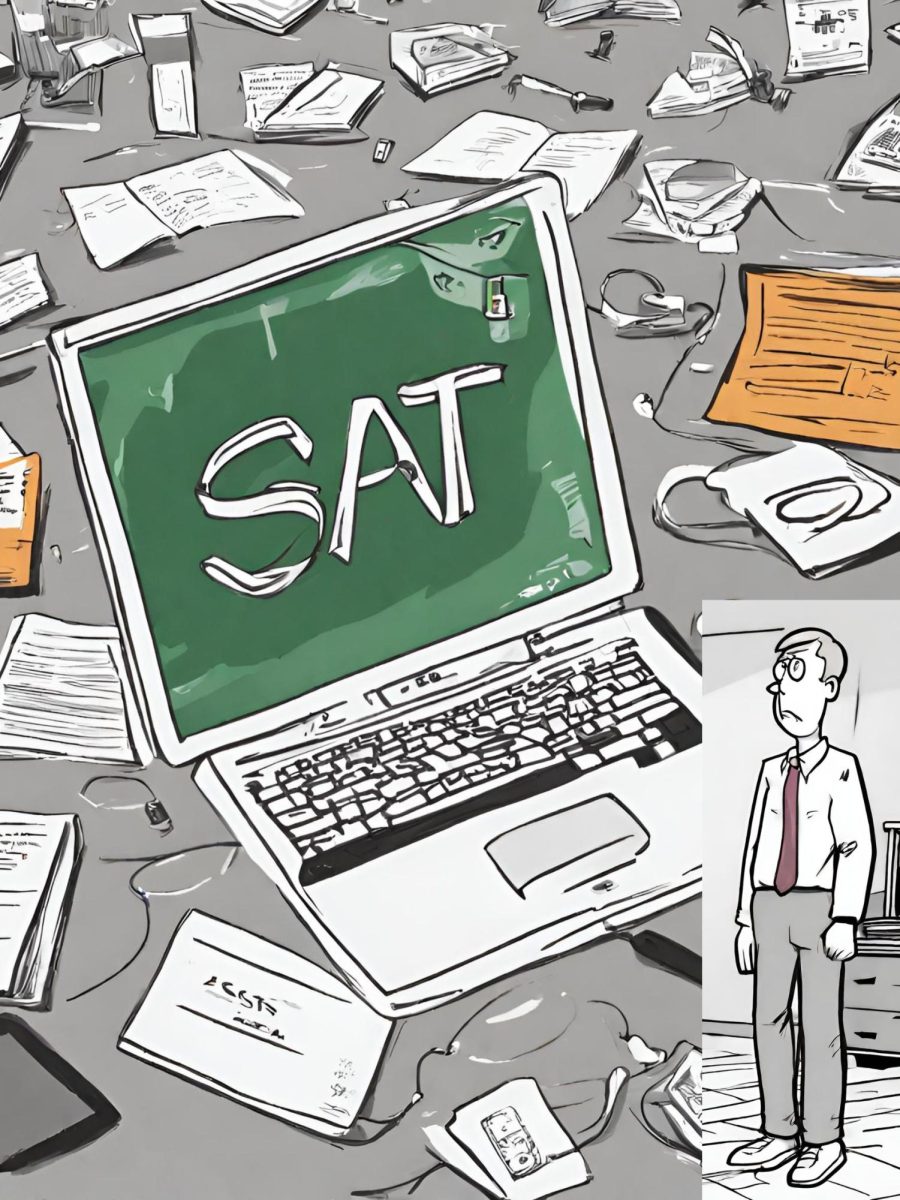






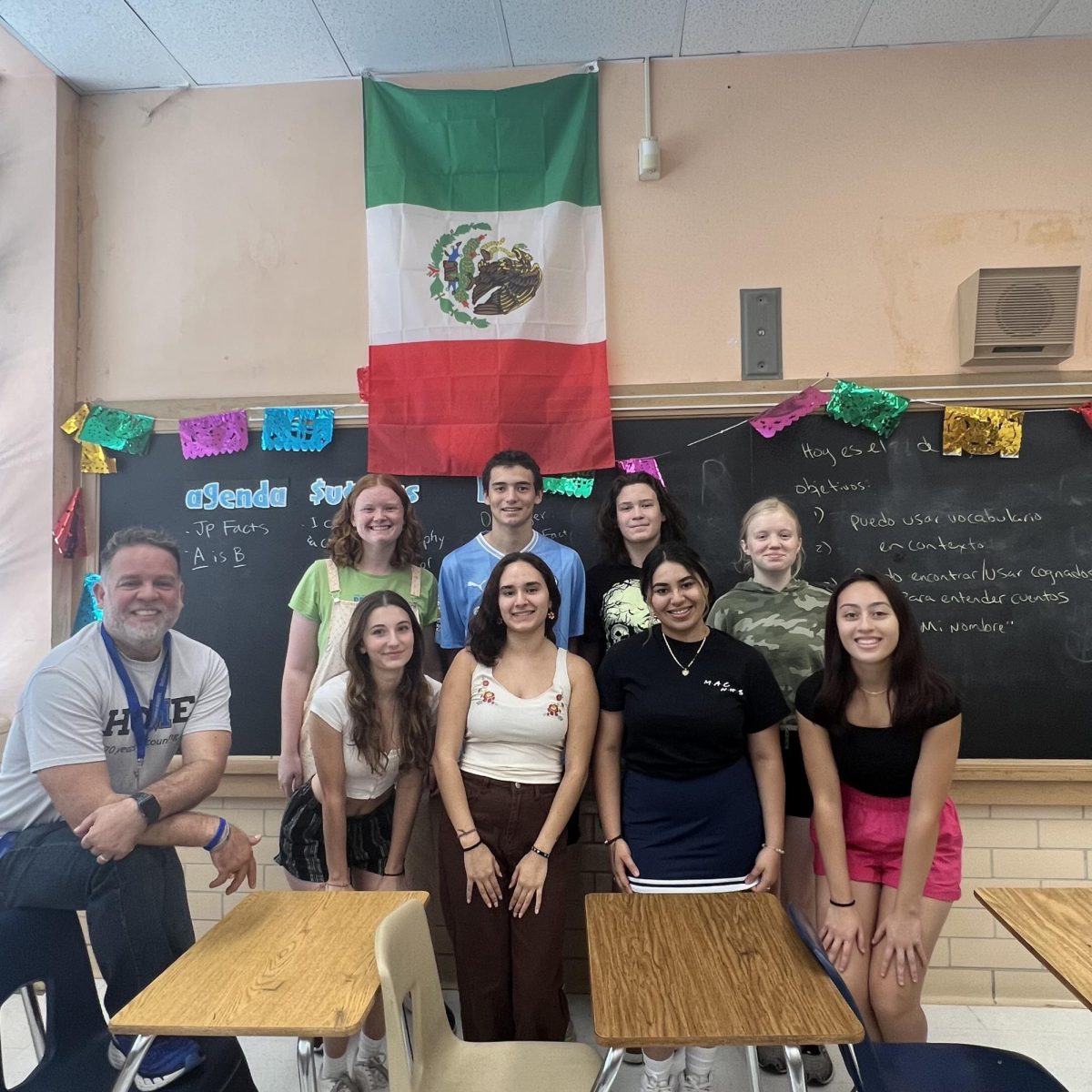

![IN THE SPOTLIGHT: Junior Zalie Mann performs “I Love to Cry at Weddings,” an ensemble piece from the fall musical Sweet Charity, to prospective students during the Fine Arts Showcase on Wednesday, Nov. 8. The showcase is a compilation of performances and demonstrations from each fine arts strand offered at McCallum. This show is put on so that prospective students can see if they are interested in joining an academy or major.
Sweet Charity originally ran the weekends of Sept. 28 and Oct. 8, but made a comeback for the Fine Arts Showcase.
“[Being at the front in the spotlight] is my favorite part of the whole dance, so I was super happy to be on stage performing and smiling at the audience,” Mann said.
Mann performed in both the musical theatre performance and dance excerpt “Ethereal,” a contemporary piece choreographed by the new dance director Terrance Carson, in the showcase. With also being a dance ambassador, Mann got to talk about what MAC dance is, her experience and answer any questions the aspiring arts majors and their parents may have.
Caption by Maya Tackett.](https://bestofsno.com/wp-content/uploads/2024/02/53321803427_47cd17fe70_o-1-1200x800.jpg)
![SPREADING THE JOY: Sophomore Chim Becker poses with sophomores Cozbi Sims and Lou Davidson while manning a table at the Hispanic Heritage treat day during lunch of Sept 28. Becker is a part of the students of color alliance, who put together the activity to raise money for their club.
“It [the stand] was really fun because McCallum has a lot of latino kids,” Becker said. “And I think it was nice that I could share the stuff that I usually just have at home with people who have never tried it before.”
Becker recognizes the importance of celebrating Hispanic heritage at Mac.
“I think its important to celebrate,” Becker said. “Because our culture is awesome and super cool, and everybody should be able to learn about other cultures of the world.”
Caption by JoJo Barnard.](https://bestofsno.com/wp-content/uploads/2024/01/53221601352_4127a81c41_o-1200x675.jpg)




